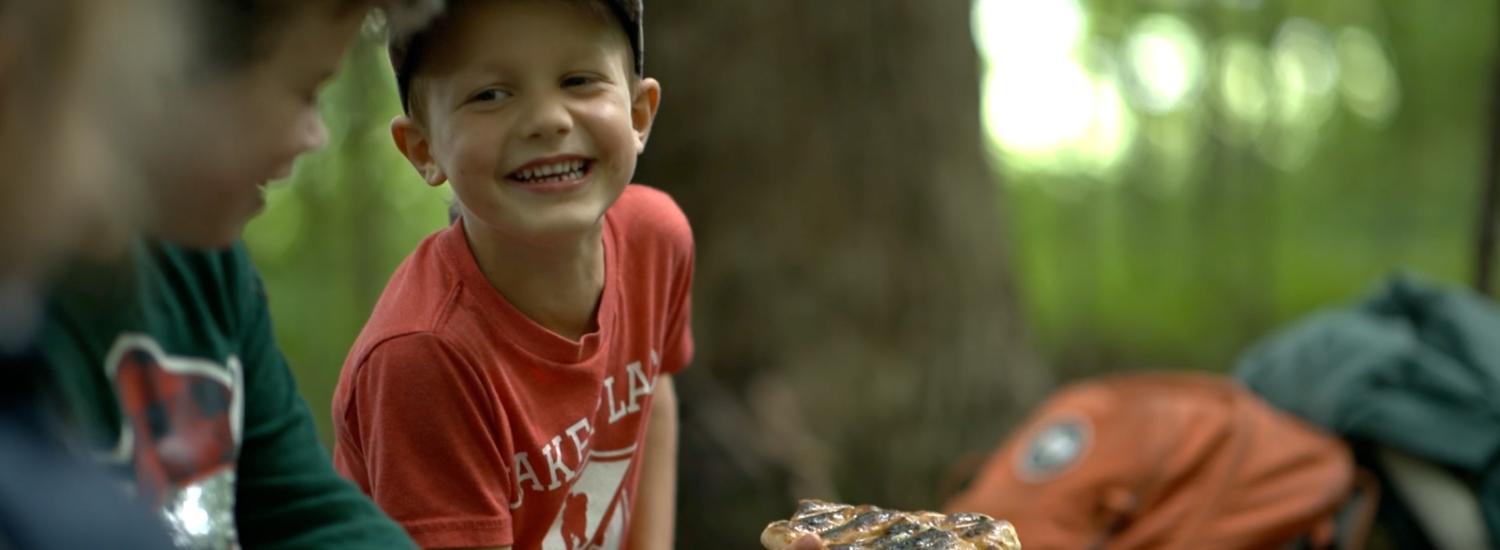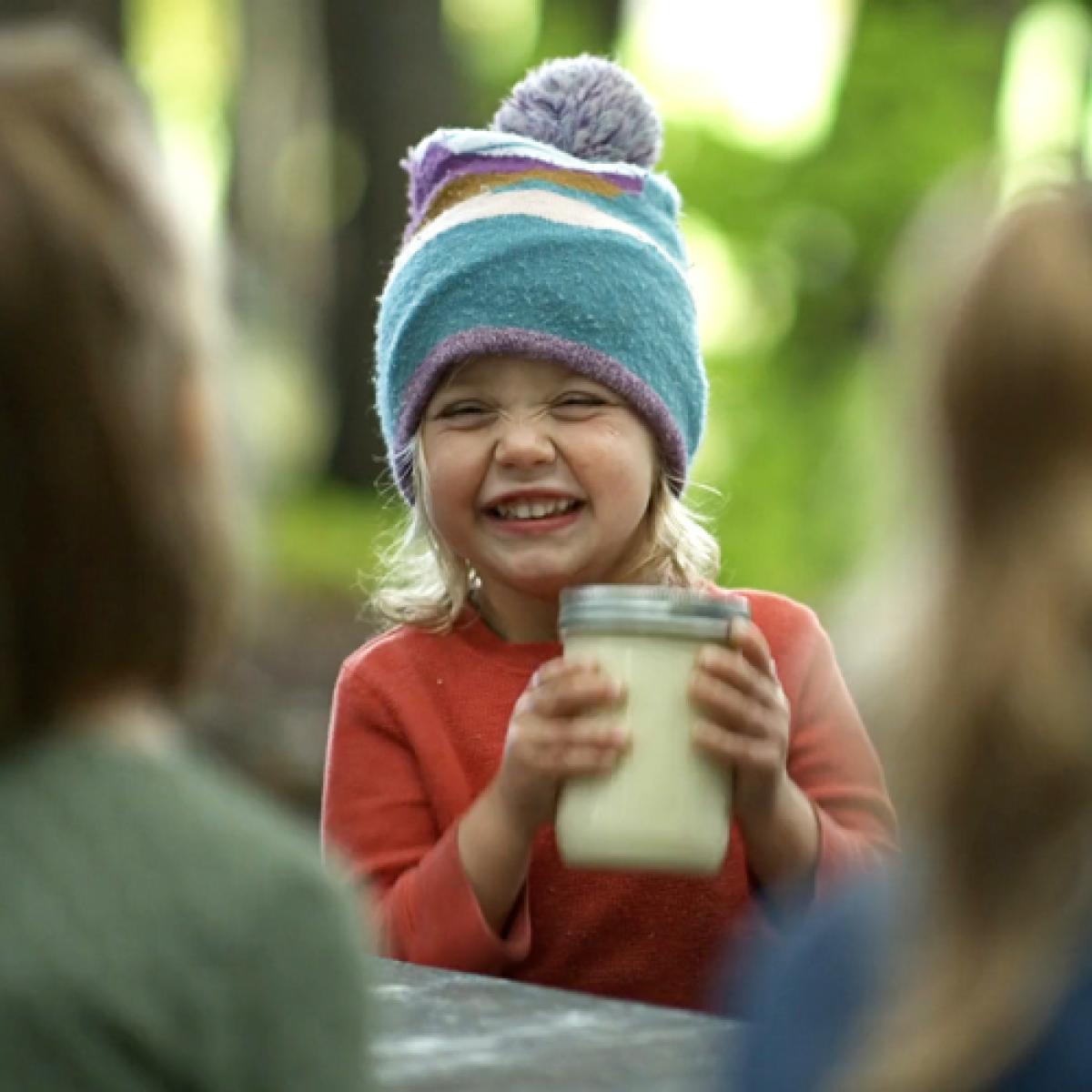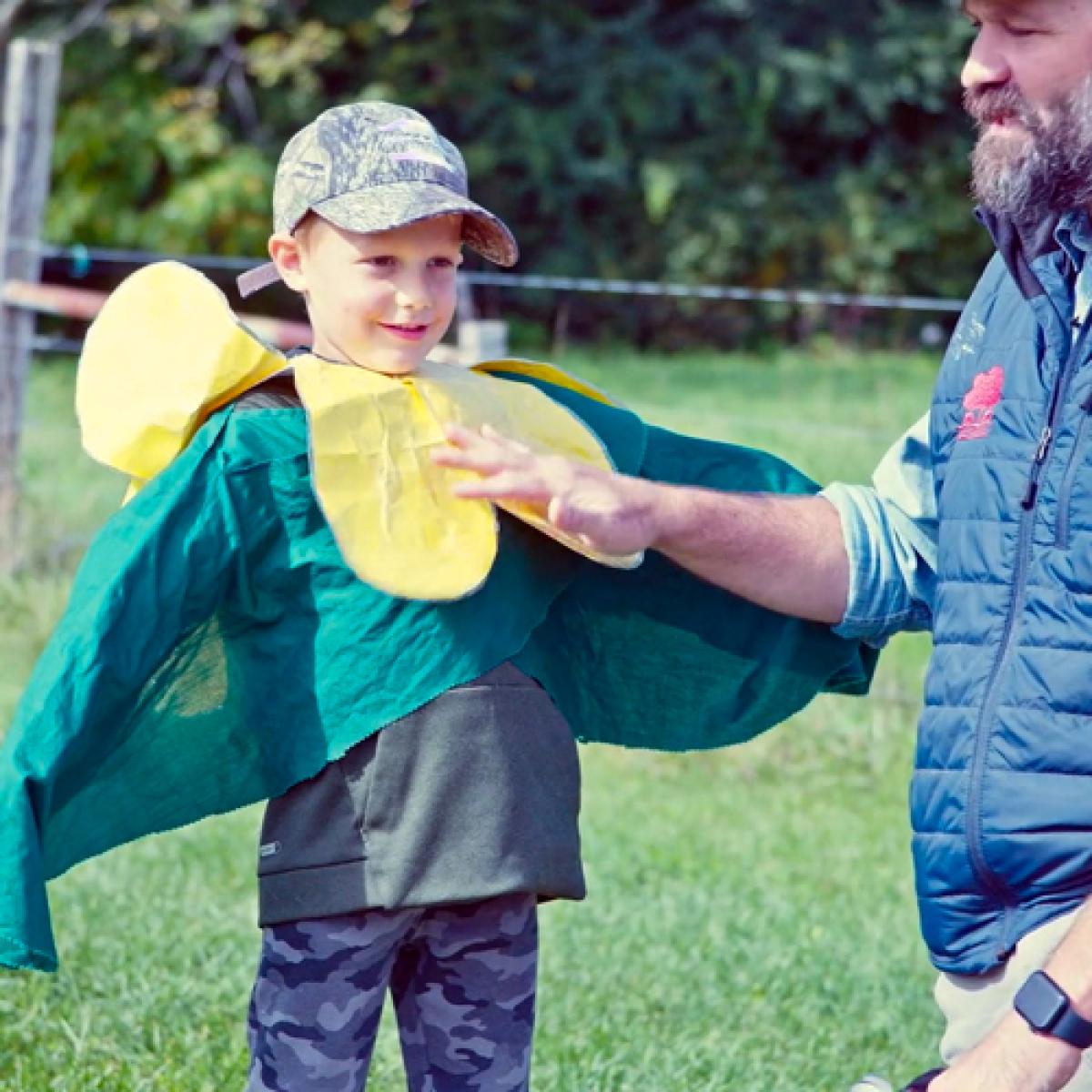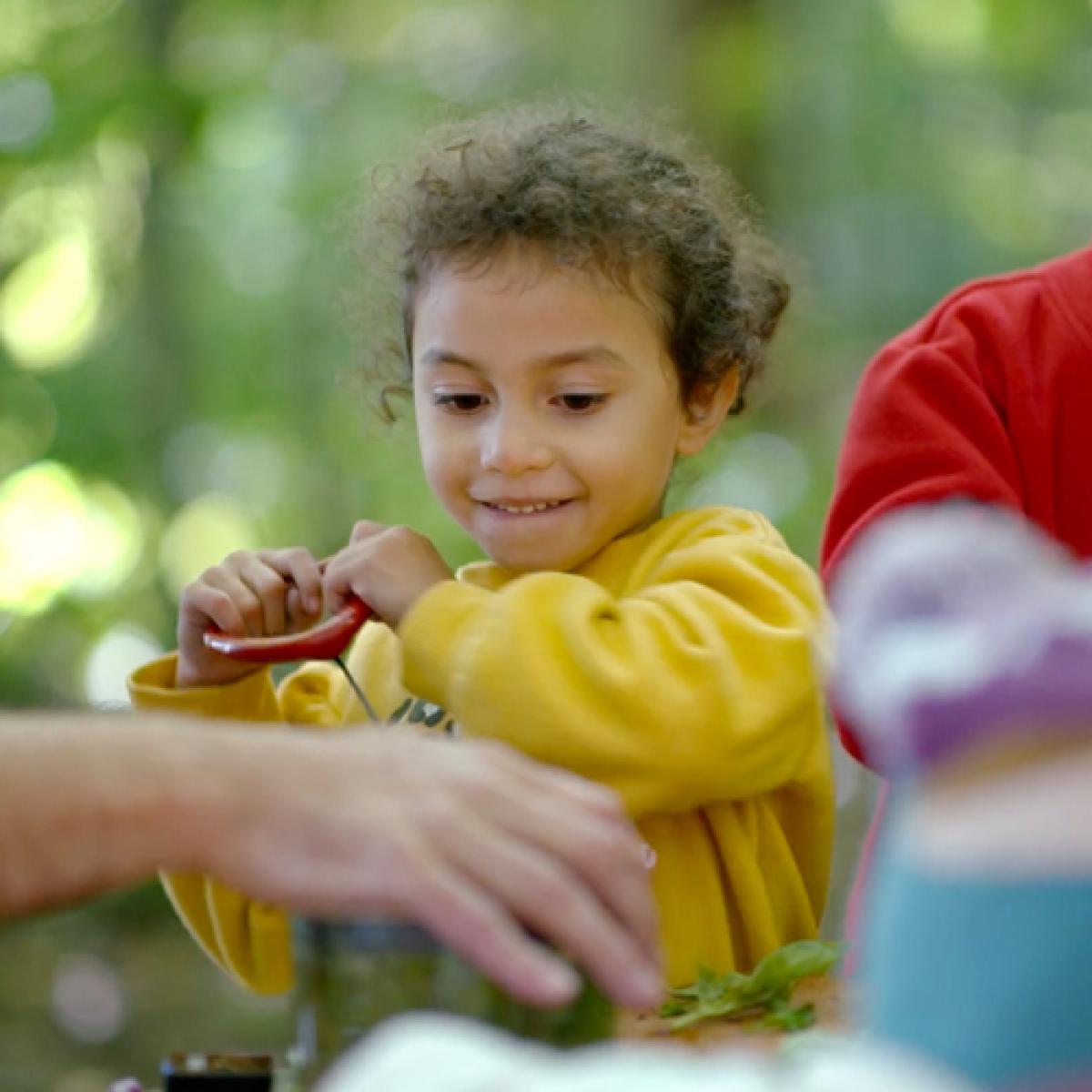Early education is the ideal setting to get kids excited about their food, where it comes from, and who makes it. “Young children are naturally curious and hands-on exploration is how they make sense of their world. Given that relationships are central in children’s development, early childhood programs offer those trusted connections for exploring the natural world, food systems, and community connections,” explains Cynthia Greene, Shelburne Farms FTEC Education Partnership Coordinator.
And if children are learning about and being fed nutritious foods at their early education setting, it makes a difference. Ninety percent of the brain is developed by age five, and healthy food is vital to healthy brain development in young children. “Rather than teaching students about tomatoes for the first time at age seven, if you introduce these foods at age two, that child’s relationship with healthy eating has four plus years of exposure and depth to it once they enter kindergarten,” Educator Jed Norris shares. “And in the scope of our lives, we change more from birth to the age of five than any other time. An early introduction to FTEC can influence a lifetime of healthy eating habits.”
- This video series is a project of the Vermont Farm to Early Childhood Coalition, an Action Team of the Vermont Farm to School & Early Childhood Network. Interested in learning more about the coalition? Reach out to Cynthia Greene at [email protected].
- Find more FTEC information in our Network Resource Library, just filter by Education and Curriculum > Early Childhood.
A special thank you to Vermont early educators Jackie Reno and Chong Ho Kim of The Janet S. Munt Family Room (Burlington, VT) and Laura Butler of Imagination Island (Milton, VT) for lending their perspectives and farm to early childhood wisdom.
This video series is a project of the Vermont Farm to Early Childhood Coalition, an Action Team of the Vermont Farm to School & Early Childhood Network. The project was supported by the Association of State Public Health Nutritionists through the Centers for Disease Control & Prevention.
The Association of State Public Health Nutritionists' Farm to ECE grantee programs are supported by the Centers for Disease Control and Prevention (CDC) of the United States (U.S.) Department of Health and Human Services (HHS), as one of several projects funded by cooperative agreement number NU38OT000279 (total of $6,320,000). This resource was supported by ASPHN's Farm to ECE grantee program, which is funded by the Division of Nutrition, Physical Activity and Obesity (DNPAO)/ National Center for Chronic Disease Prevention and Health Promotion (NCCDPHP)/CDC/HHS. The contents of this resource are those of the author(s) and do not necessarily represent the official views of, nor an endorsement by DNPAO/NCCDPHP/CDC/HHS, or the U.S. government.



